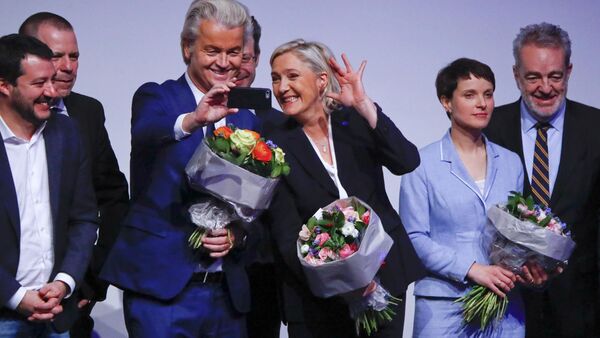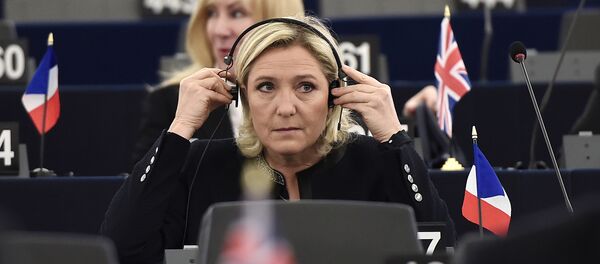Leaders of several of the EU's leading Eurosceptic parties addressed the forum, including Freuke Petry of Alternative for Germany, Geert Wilders of the Dutch Party for Freedom, Matteo Salvini of Italy's Northern League and National Front leader Marine Le Pen.
One of the meeting's main organizers, Alternative for Germany politician Hans Pretzell, told Sputnik Deutschland that the summit was a successful "presentation of what we are about."
The participants "are in great agreement that we need more freedom for nation states, we need self-determination and we need less from the EU,' Pretzell said.
2017 is an important year for all the parties in attendance, Pretzell explained.
"Geert Wilders has elections in March, Marine Le Pen follows in April, in Germany there are three regional elections and then the Bundestag election in the autumn. It is possible that there will also be elections in Italy very soon," he said.
Pretzell added that the election of Donald Trump has also offered impetus to Euroscepticism in Europe.
"We also saw a new US President yesterday, who is likely to change the relationship between Europe and the US. It has to change because Trump has already clearly articulated that he will give Europeans more responsibility for themselves and will interfere less in European affairs."
"Russia is a part of Europe, so need a new relationship with Russia. I believe that this will happen anyway under new President Trump, because the policy of confrontation has been dropped. And Europe will have to adapt to that. Germany has a great interest in redefining its relationship with Russia, for quite selfish reasons. Germany is a high-tech country, has a large sales market and Russia is a country rich in raw materials," he explained.
Despite its issues with the EU, Germany is not seeking to follow the UK in making an abrupt exit from the bloc. Rather than leaving the EU altogether, Germany and other EU members need to renegotiate the foundation of the union, including the Schengen area and single currency, Pretzell said.
"This was the British way, but it certainly isn't the German way. What we need, because we are in a very different political situation from the UK, is a renegotiation of (EU) treaties over a period of maximum five years, in order to form a new union or community on a completely new basis. In the end, we need one thing above all: co-operation on a voluntary basis and the possibility of withdrawing from things individually. That is to say, someone who joins the Schengen area must also have the opportunity to leave it."
Never miss a story again — sign up to our Telegram channel and we'll keep you up to speed!






